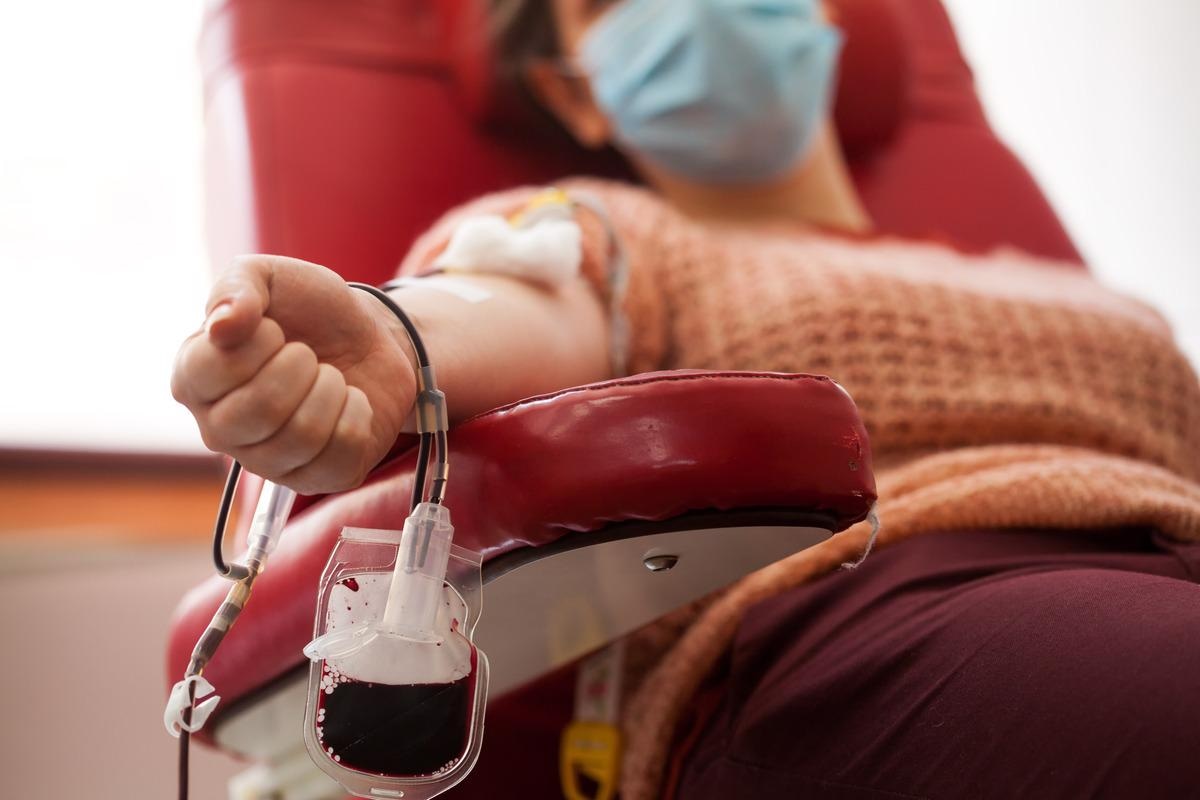A team of scientists from France has recently demonstrated the efficacy of coronavirus disease 2019 (COVID-19) convalescent plasma therapy in improving the survival rate among patients with B-cell lymphoid malignancy and COVID-19. The study is currently available on the medRxiv* preprint server.
 Study: Convalescent plasma improves overall survival in patients with B-cell lymphoid malignancies and COVID-19: a longitudinal cohort and propensity score analysis. Image Credit: Cryptographer/Shutterstock
Study: Convalescent plasma improves overall survival in patients with B-cell lymphoid malignancies and COVID-19: a longitudinal cohort and propensity score analysis. Image Credit: Cryptographer/Shutterstock
Background

 This news article was a review of a preliminary scientific report that had not undergone peer-review at the time of publication. Since its initial publication, the scientific report has now been peer reviewed and accepted for publication in a Scientific Journal. Links to the preliminary and peer-reviewed reports are available in the Sources section at the bottom of this article. View Sources
This news article was a review of a preliminary scientific report that had not undergone peer-review at the time of publication. Since its initial publication, the scientific report has now been peer reviewed and accepted for publication in a Scientific Journal. Links to the preliminary and peer-reviewed reports are available in the Sources section at the bottom of this article. View Sources
Immunocompromised patients, including those with hematological malignancies, exhibit a significantly higher risk of death due to COVID-19, a novel disease caused by severe acute respiratory syndrome coronavirus 2 (SARS-CoV-2). A suppressed functionality of the immune system due to the disease and associated treatment leads to delayed viral clearance and a higher risk of severe COVID-19. The risk is particularly higher for patients with B-cell lymphoid malignancies.
In France, COVID-19 convalescent plasma therapy has been approved to treat in-hospital immunocompromised COVID-19 patients, including hematological malignancy patients. Although therapeutic benefits of plasma therapy have not been fully established in most clinical trials, there is evidence suggesting that COVID-19 patients with B cell depletion might benefit from such therapy.
In the current study, the scientists have explored whether COVID-19 convalescent plasma therapy can reduce the mortality rate in COVID-19 patients with hematological malignancies, especially B-cell lymphoid malignancies.
Study design
The study included a total of 112 hematological malignancy patients with COVID-19 who were treated with convalescent plasma therapy. Of them, 83 had B-cell lymphoid malignancies, 10 had myeloid malignancies, and 19 had multiple myeloma. About 72% of the patients had received anti-CD20 monoclonal antibody therapy an average of 42 days before the onset of COVID-19 symptoms.
A separate set of analyses was conducted on B-cell lymphoid malignancy patients treated (n=81) or not treated (n=120) with plasma therapy.
The overall survival rate and risk factors of COVID-19 mortality were assessed among study participants. The survival rates of plasma-treated B-cell lymphoid malignancy patients were compared to those without treatment. In addition, the safety profile and kinetics of inflammatory parameters upon plasma therapy were investigated.
Important observations
Adverse events related to the transfusion of COVID-19 convalescent plasma therapy were observed in a small fraction of patients. Specifically, minor allergy was observed in two patients, and severe allergy was observed in one patient. In addition, a transient increase in oxygen requirement was observed in two patients.
Regarding therapeutic benefits, a significant reduction in body temperature, C-reactive protein, ferritin, fibrinogen, and viral load was observed in patients after plasma therapy. The highest survival rate of 77% was observed in plasma-treated B-cell lymphoid malignancy patients. Considering all patients, the overall survival rate was 65% after treatment. All deaths reported during the study period were associated with COVID-19.
A significant association was observed between overall survival and older age (above 70 years), type of malignancies, high blood pressure, prior exposure to anti-CD20 monoclonal antibody therapy, COVID-19 severity, and time of plasma therapy administration. Specifically, older age, high blood pressure, and COVID-19 severity were identified as potent risk factors for disease-related death. In contrast, a strong correlation was observed between prior exposure to anti-CD20 therapy and improved overall survival.
In B-cell lymphoid malignancy patients with a history of anti-CD20 treatment, the administration of plasma therapy caused a 63% reduction in the risk of COVID-19 related mortality.
Study significance
The study highlights the benefits of COVID-19 convalescent plasma therapy in reducing mortality among patients with hematological malignancies and COVID-19. The highest benefit has been observed for B-cell lymphoid malignancy patients, especially those previously treated with anti-CD20 monoclonal therapy.
As mentioned by the scientists, the administration of anti-spike monoclonal antibody therapy in hematological malignancy patients can act as a positive selection pressure for the development of escape mutations. Thus, in these patients, COVID-19 convalescent plasma therapy could be an alternative and effective intervention for better disease prognosis.

 This news article was a review of a preliminary scientific report that had not undergone peer-review at the time of publication. Since its initial publication, the scientific report has now been peer reviewed and accepted for publication in a Scientific Journal. Links to the preliminary and peer-reviewed reports are available in the Sources section at the bottom of this article. View Sources
This news article was a review of a preliminary scientific report that had not undergone peer-review at the time of publication. Since its initial publication, the scientific report has now been peer reviewed and accepted for publication in a Scientific Journal. Links to the preliminary and peer-reviewed reports are available in the Sources section at the bottom of this article. View Sources